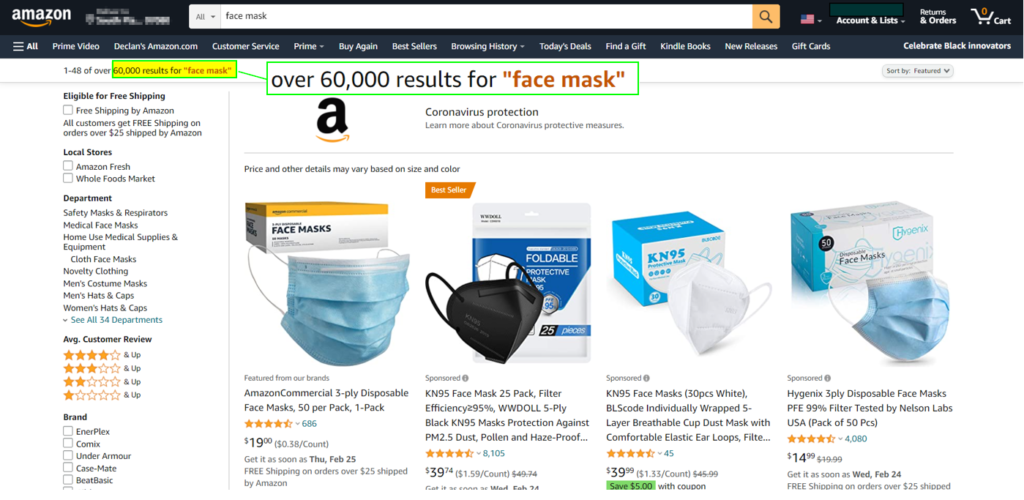When the World Health Organization declared COVID-19 a global pandemic in 2020, bad actors in the e-commerce retail space quickly exploited the situation.
As highlighted in a previous GreyScout blog published during the early stages of the pandemic, the issue of counterfeit products on e-commerce marketplaces like Amazon and eBay has been exasperated by the COVID-19 pandemic.
In 2021, the rules for staying safe from COVID-19 remained the same: Protect yourself with PPE (Personal Protection Equipment) such as masks, face shields, and gloves, keep surfaces clean with antibacterial cleaning products, and wash hands frequently with hand sanitiser.
While vaccines are being rolled out worldwide, no over-the-counter medicines that fight the virus were available. Still, this fact didn’t stop shady online sellers from peddling unlicensed pharmaceuticals claiming to cure or stave off the virus, along with poor quality PPE that is not up to standards.
On March 19 2020, the European Anti-Fraud Office (OLAF) launched an inquiry into the illicit trade of counterfeit PPE. They identified more than 340 companies “acting as intermediaries or traders of counterfeit or substandard products linked to the COVID-19 pandemic.”
“Exploiting the fear and anxieties of citizens, fraudsters have also taken to sell alternative medicine products that are not effective in protecting from or treating the COVID-19 infection. The cross-border creativity of these fraud schemes is impressive,” reads a statement by the OLAF.
Counterfeit PPE and Your E-Commerce Brand

During the early stages of the COVID-19 situation, GreyScout highlighted the need for e-commerce businesses to be vigilant in protecting their brand and customers from the threats of counterfeit goods. With e-commerce shopping reaching unprecedented levels due to the pandemic, it’s critical to safeguard the customer experience by protecting clients from increased grey market and counterfeiting activity. If your e-commerce business provides PPE products, make sure to equip your customers with the knowledge of what makes a PPE product legitimate while ensuring your products meet the following criteria:
- Proper Markings: Genuine products should show a standard number, a manufacturer name, logo, or number, and an EU CE mark (and Notified Body number for FFP2/3 masks)
- EU Certification/CE marking: A copy of the certification and Declaration of Conformity (DoC) should be available to download or by request from the PPE manufacturer/supplier
- Declaration of Conformity (DoC): contains valid and proper information
- Technical Documentation: The product includes instructions from the manufacturer
- Quality: The product looks and feels like it was manufactured with quality and up to safety standards
- Branding: The product’s instructions, packaging, and other material is free of spelling and grammar errors that serve as major red flags as being counterfeit
The Bottom Line
Establishing your brand as trustworthy in the eyes of the online customer is vital in a market where hundreds of merchants are attempting to exploit the COVID-19 pandemic. Brands can protect themselves by clearly communicating with customers the legitimacy of their products, PPE or otherwise.
As a trusted e-commerce brand, you have a responsibility to both your own company and the e-commerce industry to protect vulnerable consumers through simple measures like the
ones above and by utilizing brand protection software that provides monitoring, image recognition, and machine learning to alert you of autonomously fraudulent activity harming your business.

